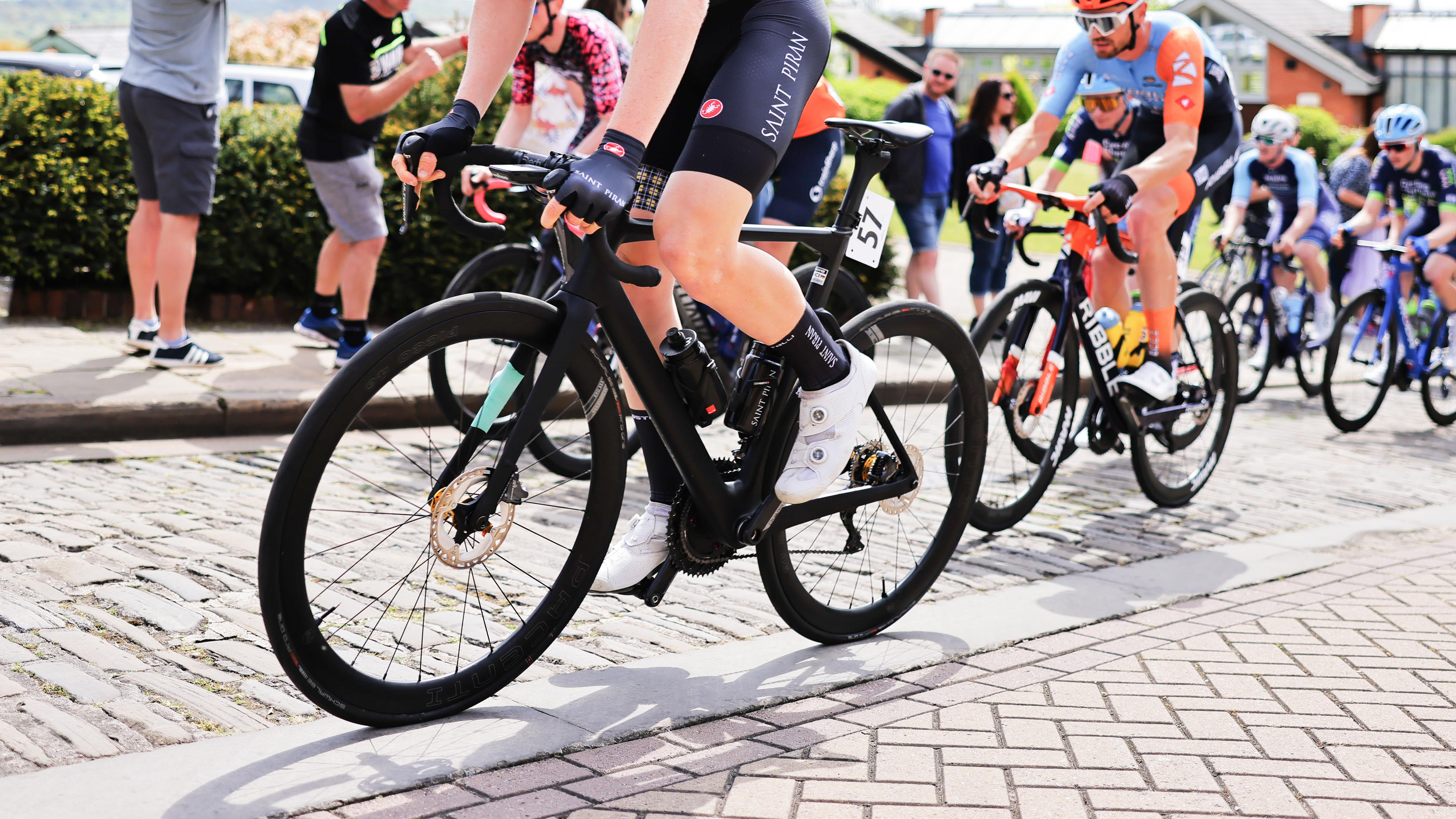
Cornwall-based British Continental squad, Saint Piran, has been using unmarked Chinese frames with fake UCI approval stickers applied to them, according to reports by Cycling Weekly.
The highest-profile UK domestic squad, which is run by Richard Pascoe and holds British Cycling Elite Development Team status, has been racing on all-black, unmarked framesets purchased from a Chinese manufacturer. Fake UCI stickers were then applied to the seat tube in order to give the appearance of compliance.
This situation arose in the wake of a breakdown in relations between Saint Piran and its then-sponsor, Lapierre, in 2022. The dispute was reportedly over safety concerns with the models supplied, which Lapierre strenuously denied. It must be said that no recall has been issued on the models in question, and no issue was reported by Lapierre's WorldTour team, Groupama-FDJ, at the time. The cost of the claim by Saint Piran was reportedly £100,000, and resulted in the team being without bikes on which to race for a period, before Trek stepped in to fill the void as sponsor.
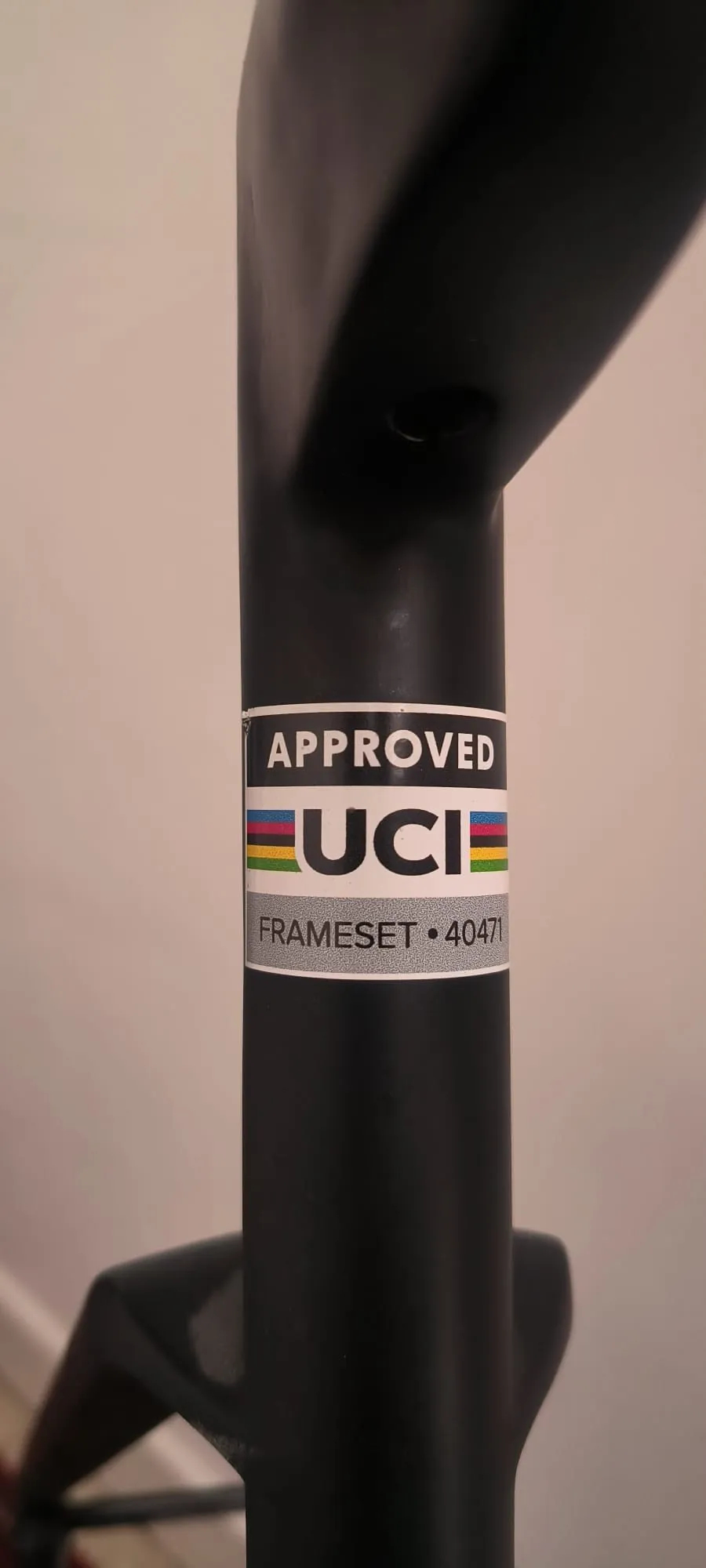
In this interim period, the team purchased frames from a Chinese manufacturer, dubbed the ‘Wuhan Weapon’ by riders. It appears from pictures seen by Cyclingnews that the frames are from the brand Lightcarbon, with the model being simply named ‘Integrated Road Bike Disc Frame’, though St. Piran denies this, instead only stating that it used a 'Chinese brand'.
It is reported that Pascoe brushed off any safety concerns regarding non-UCI approved framesets and accused the riders of ‘moaning’, and insisted that the frames were UCI compliant.

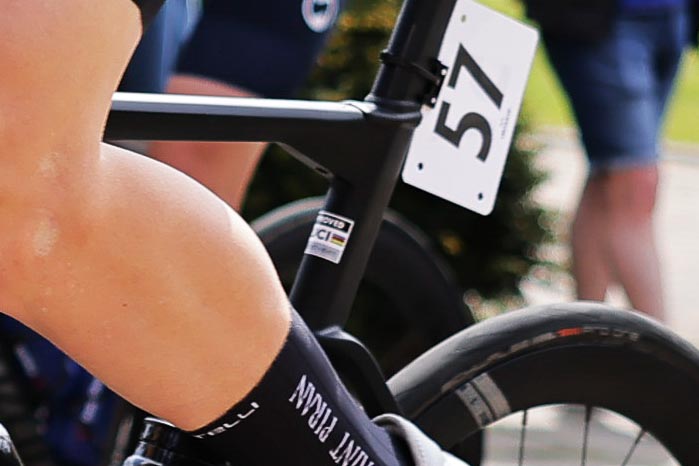
All equipment used in UCI races must be approved by the governing body, hence the need for stickers on frames that are compliant, and applied at the time of manufacture. Pascoe, it is reported, planned to apply the stickers 'in race', with clear nail varnish to achieve the effect, but in photos of the stickers in question, it can be seen that the corners can be lifted up with a fingernail. There is a chance that the strong acetone solvent present in nail varnish could have dissolved the ink in the stickers, rendering them useless.
The application of UCI approval stickers by an individual is in direct contravention of the rules. UCI rules state ‘the fixing of the UCI frameset and UCI fork labels by private individuals is forbidden’, and moreover that the stickers must be ‘visible, indelible and inseparable from the frameset’. The stickers in question are also unlike the current approval stickers, each of which has a code linking the frameset in question to the UCI list of approved equipment. The stickers in this case merely say ‘APPROVED’ with no such code. The UCI approval list also has no Lightcarbon approved frames.
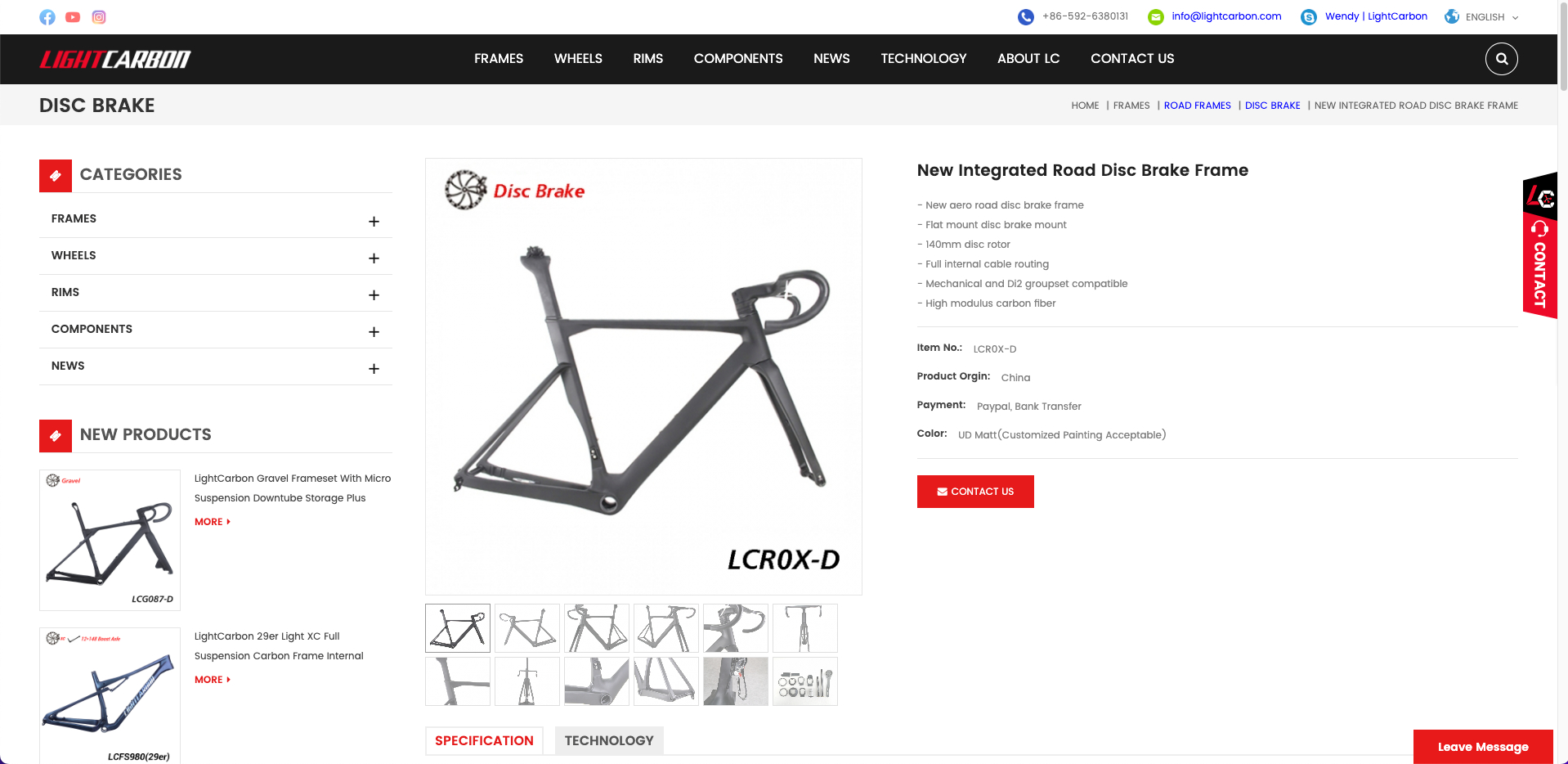
In a statement on Instagram posted this morning, Saint Piran state: "After a detailed inspection, we can confirm the unbranded frames were not compliant with the UCI regulation process." It goes on to say "Saint Piran acted on the advice of the manufacturer and an external expert and understood they were in line with UCI regulations at all times. It appears that advice was incorrect. We have now reported this to the UCI and British Cycling and will abide by their ruling."
The use of illegal equipment isn’t only forbidden for safety reasons, but in order to prevent teams or riders from gaining an advantage. In this regard, the team states "The Frames complied with all ISO standards and the geometry and design met UCI regulations so no advantage was gained in any way."
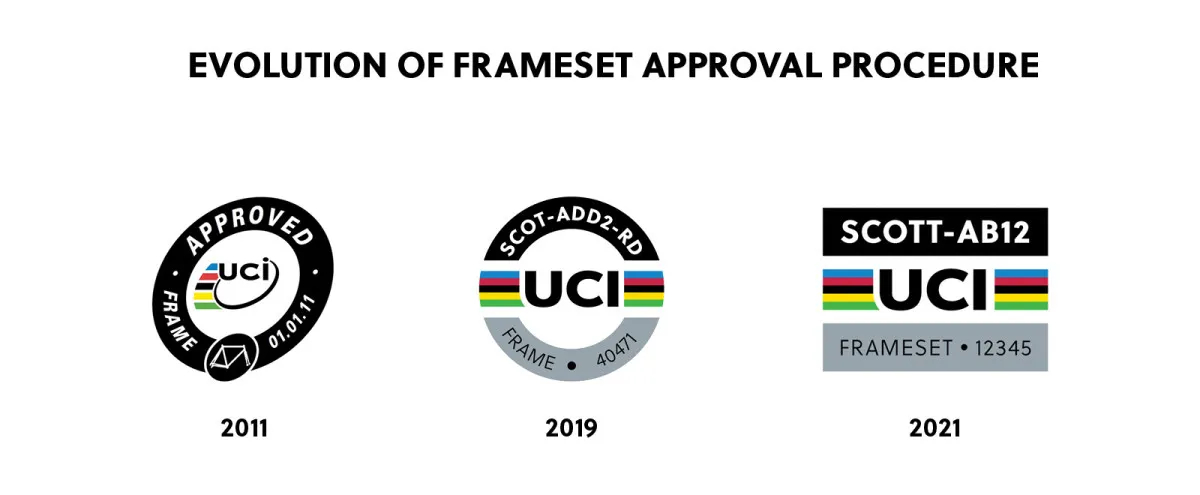
Update: UCI opens official investigation
Following the information above, the UCI has officially provided a short statement into the affair:
'The UCI can confirm that an investigation is currently underway regarding the potential use of a non-homologated frameset by UCI Continental team Saint Piran in past events on the UCI International Calendar.'.
No further information was provided, and given the ongoing nature of the investigation it was made clear that none would be going forward either.
Interrogation of the UCI approvals documentation for equipment clearly states that 'any misuse of the label or use contrary to the provisions of this protocol may be penalised by a fine of between CHF 10,000 and 100,000.'







